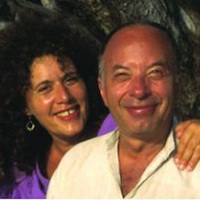We spend our whole life living with ourselves.
It is the longest and most intimate of all relationships we will ever have yet it’s the one we take most for granted. For instance, how often do you feel like you’re living inside a stranger, such as when you get ill, or fall in love with the least likely person?
Realistically, we should know ourselves better than anyone else but more often than not we dislike ourselves, are constantly finding fault, or reject our feelings.
How totally sad that we should dislike the person we spend our life with! We have the opportunity for the deepest and most sustaining love affair of all and instead we criticize and invalidate, dismissing our own thoughts, feelings, and needs as unimportant.
The Buddha said there is no one more deserving of love than ourselves. That’s a big statement and can be hard to actuate, especially as it seems so much easier to love others.
But can our love for others be genuine if we’re not loving ourselves?
Self-doubt comes with fear, such as the fear of failure, of being out of control, of not being good enough. We fear loving because we doubt our ability to love and so fear rejection; we fear being generous because we doubt our capacity to generate more and so fear we will not have enough; we fear sharing our thoughts or feelings for doubt that we will appear wrong or stupid. Such doubt creates anxiety, nervous disorders and even paranoia. It is the enemy of real happiness.
All is not hopeless! In every moment we have the opportunity to believe in ourselves by growing in awareness and self-compassion, and by discovering that the essence of who we are is not dependent on anything outside of us but is always within.
In Tibet there is a wonderful word, ding, that means knowing and feeling at home with oneself, comfortable in one’s own skin, and this ‘at-homeness’ is the opposite of self-doubt.
“As we increasingly wake up, we become skillful in navigating the emotional terrain of anger, fear, worry, doubt—all the ego-dominated perceptions that cause us to think such feelings are real and justified,” says Michael Bernard Beckwith in our book, Be The Change. “Emotions of all kinds arise, but we are that which witnesses them. We become aware that we are aware. We realize that we have a body but we are not our body. We witness the thinking mind, but we are not the thoughts that are passing through. Our essence remains the changeless witness to that panorama.”
In times of stillness and meditation we create a space where self-doubt, fear, mistrust, sadness, anger, confusion, or any other emotion can come and be seen and pass through.
If we deny any of these then they will follow us wherever we go. When we witness without attachment then doubt and fear are acknowledged, and once acknowledged no longer require attention.
Making friends with the content of our own minds shows us that behind even the darkest difficulty lies the happiness that is our true nature.
Like elephant spirituality on Facebook.
Ed: Bryonie Wise

 Share on bsky
Share on bsky






Read 0 comments and reply